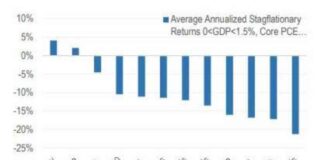Apple Stock Declines Due to Weak iPhone 16 Demand
Apple’s shares took a hit on Monday morning, dropping by 3.6% following reports of lower-than-expected demand for the newly released iPhone 16. According to TF Securities analyst Ming-Chi Kuo, the demand for the iPhone 16 is down 12% compared to the first-weekend sales of its predecessor, the iPhone 15, last year.
Kuo pointed out that one of the main reasons for the lower demand is the absence of the much-anticipated Apple Intelligence feature at the launch of the iPhone 16. Additionally, stiff competition in the Chinese market has continued to impact iPhone sales for Apple.
At a recent event held at the Steve Jobs Theater in Cupertino, California, Apple unveiled the new iPhone 16, along with updated versions of the AirPods and Apple Watch. However, pre-orders for the new iPhones have not been as robust as expected, with launch dates set for September 20. The delay in the release of the Apple Intelligence feature for the iPhone 16 is also seen as a contributing factor to the weaker demand.
Analysts’ Perspectives on iPhone 16 Demand
Analysts from Barclays, JPMorgan, and Bank of America have weighed in on the situation, providing insights into the factors affecting iPhone 16 demand. Barclays analysts noted that pre-order units for the new iPhones were down year-over-year in the first few days, with a lower proportion of pro models being sold compared to the base and plus models.
JPMorgan analysts observed that early lead times for the iPhone 16 base models are in line with the iPhone 15 series during the pre-order week, while demand for the Pro models has been softer. Meanwhile, BofA analysts highlighted that shipping times for the iPhone 16 Pro and Pro Max models have been extended compared to last year, indicating potential demand challenges.
Challenges in the Chinese Market
The Chinese market has been a key battleground for Apple, with intense competition and macroeconomic challenges impacting iPhone sales in the region. The delay in the rollout of Apple Intelligence in the Chinese language until 2025 has dampened enthusiasm for the iPhone 16 among Chinese consumers.
To boost sales in China, Apple has resorted to offering significant discounts on the iPhone 15. However, the analysts suggest that these measures may not be sufficient to overcome the headwinds facing the company in the Chinese market.
In response to the weaker demand, Apple has slashed prices for the iPhone 16 in Australia and India, in a bid to stimulate sales in these markets. The Pro models, priced at $999 and $1,199 respectively, offer premium features such as enhanced displays and cameras, making them attractive options for consumers seeking top-of-the-line smartphones.
Overall, the challenges in the Chinese market, coupled with the delayed launch of key features like Apple Intelligence, have contributed to the subdued demand for the iPhone 16. As Apple navigates these hurdles, the company will need to strategize and adapt to the evolving landscape of the smartphone industry to maintain its competitive edge.






















